We wouldn’t dream of abandoning our vast semi–annual Most Anticipated Book Previews, but we thought a monthly reminder would be helpful (and give us a chance to note titles we missed the first time around). Here’s what we’re looking out for this month — for more April titles, check out our First-Half Preview. Let us know what you’re looking forward to in the comments!
(Also, as Millions founder and publisher C. Max Magee wrote recently, you can help ensure that these previews, and all our great books coverage, continue for years to come by lending your support to the site as a member. The Millions has been running for nearly 15 years on a wing and a prayer, and we’re incredibly grateful for the love of our recurring readers and current members who help us sustain the work that we do.)
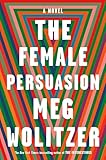 The Female Persuasion by Meg Wolitzer: Wolitzer is one of those rare novelists who is able to capture the zeitgeist. Her follow up to The Interestings, The Female Persuasion centers around Greer Kadetsky, who is a freshman in college when she meets Faith Frank, an inspiring feminist icon who ignites Greer’s passions. After graduation, Greer lands a job at Frank’s foundation and things get real. Wolitzer is a master weaver of story lines and in this novel she brings four together as the characters search for purpose in life and love. As the starred review in Publisher’s Weekly says, this novel explores, “what it is to both embrace womanhood and suffer because of it.” Amen sister. (Claire)
The Female Persuasion by Meg Wolitzer: Wolitzer is one of those rare novelists who is able to capture the zeitgeist. Her follow up to The Interestings, The Female Persuasion centers around Greer Kadetsky, who is a freshman in college when she meets Faith Frank, an inspiring feminist icon who ignites Greer’s passions. After graduation, Greer lands a job at Frank’s foundation and things get real. Wolitzer is a master weaver of story lines and in this novel she brings four together as the characters search for purpose in life and love. As the starred review in Publisher’s Weekly says, this novel explores, “what it is to both embrace womanhood and suffer because of it.” Amen sister. (Claire)
 The Recovering by Leslie Jamison: The bestselling author of The Empathy Exams brings us The Recovering, which explores addiction and recovery in America, in particular the stories we tell ourselves about addiction. Jamison also examines the relationship many well-known writers and artists had with addiction, including Amy Winehouse, Billie Holiday, Raymond Carver, David Foster Wallace, and more. The Recovering has received advance praise from Stephen King, Vivian Gornick, and Anne Fadiman. Chris Kraus described the The Recovering as “a courageous and brilliant example of what nonfiction writing can do.” (Zoë)
The Recovering by Leslie Jamison: The bestselling author of The Empathy Exams brings us The Recovering, which explores addiction and recovery in America, in particular the stories we tell ourselves about addiction. Jamison also examines the relationship many well-known writers and artists had with addiction, including Amy Winehouse, Billie Holiday, Raymond Carver, David Foster Wallace, and more. The Recovering has received advance praise from Stephen King, Vivian Gornick, and Anne Fadiman. Chris Kraus described the The Recovering as “a courageous and brilliant example of what nonfiction writing can do.” (Zoë)
 America Is Not the Heart by Elaine Castillo: As we enter year two of the Donald Trump presidency, Castillo’s first novel challenges readers to look beyond the headlines to grasp the human dimension of America’s lure to immigrants in this big-hearted family saga about three generations of women who struggle to reconcile the lives they left behind in the Philippines with the ones they are making for themselves in the American suburbs. (Michael)
America Is Not the Heart by Elaine Castillo: As we enter year two of the Donald Trump presidency, Castillo’s first novel challenges readers to look beyond the headlines to grasp the human dimension of America’s lure to immigrants in this big-hearted family saga about three generations of women who struggle to reconcile the lives they left behind in the Philippines with the ones they are making for themselves in the American suburbs. (Michael)
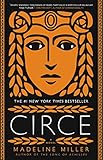 Circe by Madeline Miller: It took Miller 10 years to write her Orange Prize-winning debut novel, The Song of Achilles. Happily, we only had to wait another five for Circe, even more impressive when one considers that the novel’s story covers millennia. Here Miller again invokes the classical world and a massive cast of gods, nymphs, and mortals, but it’s all seen through the knowing eyes of Circe, the sea-witch who captures Odysseus and turns men into monsters. (Kaulie)
Circe by Madeline Miller: It took Miller 10 years to write her Orange Prize-winning debut novel, The Song of Achilles. Happily, we only had to wait another five for Circe, even more impressive when one considers that the novel’s story covers millennia. Here Miller again invokes the classical world and a massive cast of gods, nymphs, and mortals, but it’s all seen through the knowing eyes of Circe, the sea-witch who captures Odysseus and turns men into monsters. (Kaulie)
 Heads of the Colored People by Nafissa Thompson-Spires: A debut collection of stories exploring black identity and middle-class life in so-called “post-racial” America, with storylines ranging from gun violence and depression to lighter matters like a passive-aggressive fight between the mothers of school kids. George Saunders called these stories “vivid, fast, funny, way-smart, and verbally inventive.” (Lydia)
Heads of the Colored People by Nafissa Thompson-Spires: A debut collection of stories exploring black identity and middle-class life in so-called “post-racial” America, with storylines ranging from gun violence and depression to lighter matters like a passive-aggressive fight between the mothers of school kids. George Saunders called these stories “vivid, fast, funny, way-smart, and verbally inventive.” (Lydia)
 And Now We Have Everything by Meaghan O’Connell: O’Connell’s memoir—her first book—is here to remedy the “nobody tells you what it’s really like” refrain of new mothers. Giving birth to her son in her 20s, after an unplanned pregnancy, O’Connell chronicles the seismic changes that happened to her body, routine, social life, and existential purpose before she knew what was coming. All the cool moms of literary twitter (including Edan!) are raving. (Janet)
And Now We Have Everything by Meaghan O’Connell: O’Connell’s memoir—her first book—is here to remedy the “nobody tells you what it’s really like” refrain of new mothers. Giving birth to her son in her 20s, after an unplanned pregnancy, O’Connell chronicles the seismic changes that happened to her body, routine, social life, and existential purpose before she knew what was coming. All the cool moms of literary twitter (including Edan!) are raving. (Janet)
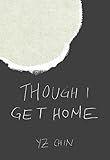 Though I Get Home by YZ Chin: Winner of the Louise Meriwether First Book Prize, this debut is a linked collection of stories centering the through-character of Isabella Sin, a young woman from Malaysia who, among other things, is imprisoned for writing pornographic poetry. With titles like “When Starbucks Came” or “A Malaysian Man in Mayor Bloomberg’s Silicon Alley,” the book navigates Malaysian culture and politics and the way they play out in the lives of individuals. In a starred review, Kirkus calls this a “haunting, surprising, and rebellious collection that contains multitudes.” (Lydia)
Though I Get Home by YZ Chin: Winner of the Louise Meriwether First Book Prize, this debut is a linked collection of stories centering the through-character of Isabella Sin, a young woman from Malaysia who, among other things, is imprisoned for writing pornographic poetry. With titles like “When Starbucks Came” or “A Malaysian Man in Mayor Bloomberg’s Silicon Alley,” the book navigates Malaysian culture and politics and the way they play out in the lives of individuals. In a starred review, Kirkus calls this a “haunting, surprising, and rebellious collection that contains multitudes.” (Lydia)
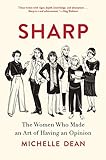 Sharp: The Women Who Made an Art of Having an Opinion by Michelle Dean: You’ve been reading Dean’s reviews and journalism for some time at The Nation, The Guardian, Buzzfeed, The New Yorker, Slate, Salon The New Republic, et alia. Winner of the 2016 NBCC’s Nona Balakian Citation for Excellence in Reviewing, Dean is debuting her first book with apt timing: Sharp features intertwining depictions of our most important 20th-century female essayists and cultural critics—Susan Sontag, Dorothy Parker, Hannah Arendt, Pauline Kael, Rebecca West, Janet Malcolm, Joan Didion, and others. A hybrid of biography, literary criticism, and cultural history, Sharp has been praised and starred by PW as a “stunning and highly accessible introduction to a group of important writers.” (Sonya)
Sharp: The Women Who Made an Art of Having an Opinion by Michelle Dean: You’ve been reading Dean’s reviews and journalism for some time at The Nation, The Guardian, Buzzfeed, The New Yorker, Slate, Salon The New Republic, et alia. Winner of the 2016 NBCC’s Nona Balakian Citation for Excellence in Reviewing, Dean is debuting her first book with apt timing: Sharp features intertwining depictions of our most important 20th-century female essayists and cultural critics—Susan Sontag, Dorothy Parker, Hannah Arendt, Pauline Kael, Rebecca West, Janet Malcolm, Joan Didion, and others. A hybrid of biography, literary criticism, and cultural history, Sharp has been praised and starred by PW as a “stunning and highly accessible introduction to a group of important writers.” (Sonya)
 How to Write an Autobiographical Novel by Alexander Chee: In addition to receiving a starred review—and being named a Top 10 Essay Collection of Spring 2018—by Publishers Weekly, Chee’s essay collection explores a myriad of topics that include identity, the AIDS crisis, Trump, tarot, bookselling, art, activism, and more. Ocean Vuong described the book as “life’s wisdom—its hurts, joys and redemptions—salvaged from a great fire.” (Zoë)
How to Write an Autobiographical Novel by Alexander Chee: In addition to receiving a starred review—and being named a Top 10 Essay Collection of Spring 2018—by Publishers Weekly, Chee’s essay collection explores a myriad of topics that include identity, the AIDS crisis, Trump, tarot, bookselling, art, activism, and more. Ocean Vuong described the book as “life’s wisdom—its hurts, joys and redemptions—salvaged from a great fire.” (Zoë)
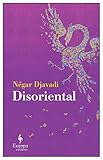 Disoriental by Négar Djavadi (translated by Tina Kover): From the waiting room of a French fertility clinic, a young woman revisits the stories of generations of her Iranian ancestors culminating in her parents, who brought her to France when she was 10. This French hit, published in English by Europa Editions, is called “a rich, irreverent, kaleidoscopic novel of real originality and power” by Alexander Maksik. (Lydia)
Disoriental by Négar Djavadi (translated by Tina Kover): From the waiting room of a French fertility clinic, a young woman revisits the stories of generations of her Iranian ancestors culminating in her parents, who brought her to France when she was 10. This French hit, published in English by Europa Editions, is called “a rich, irreverent, kaleidoscopic novel of real originality and power” by Alexander Maksik. (Lydia)
 Black Swans by Eve Babitz: Until last year, Babitz was an obscure writer who chronicled hedonistic Los Angeles in the 1960s and 1970s. And then Counterpoint and NYRB Classics began reissuing her memoirs and autofiction, and word of Babitz’s unique voice began to spread. In The New Yorker, Jia Tolentino wrote, “On the page, Babitz is pure pleasure—a perpetual-motion machine of no-stakes elation and champagne fizz.” Novelist Catie Disabato asserts that Babitz “isn’t the famous men she fucked or the photographs she posed in. She is the five books of memoir and fiction she left behind for young women, freshly moved to Los Angeles, to find.” Black Swans is the latest in these recent reissues. Published in 1993, these stories/essays cover everything from the AIDS crisis to learning to tango. And, of course, the Chateau Marmont. (Edan)
Black Swans by Eve Babitz: Until last year, Babitz was an obscure writer who chronicled hedonistic Los Angeles in the 1960s and 1970s. And then Counterpoint and NYRB Classics began reissuing her memoirs and autofiction, and word of Babitz’s unique voice began to spread. In The New Yorker, Jia Tolentino wrote, “On the page, Babitz is pure pleasure—a perpetual-motion machine of no-stakes elation and champagne fizz.” Novelist Catie Disabato asserts that Babitz “isn’t the famous men she fucked or the photographs she posed in. She is the five books of memoir and fiction she left behind for young women, freshly moved to Los Angeles, to find.” Black Swans is the latest in these recent reissues. Published in 1993, these stories/essays cover everything from the AIDS crisis to learning to tango. And, of course, the Chateau Marmont. (Edan)
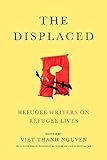 Displaced: Refugee Writers on Refugee Lives edited by Viet Thanh Nguyen: An anthology of essays by 18 excellent writers who are also refugees, including Aleksandar Hemon, Porochista Khakpour, Maaza Mengiste, and Dina Nayeri. In a decade characterized by massive global displacement that seems likely to grow worse, this collection is both a reminder of the lives altered or destroyed by geopolitical happenings, and a gesture of aid: the publisher will donate $25,000 annually to the International Rescue Committee, or 10% of the book’s cover price. (Lydia)
Displaced: Refugee Writers on Refugee Lives edited by Viet Thanh Nguyen: An anthology of essays by 18 excellent writers who are also refugees, including Aleksandar Hemon, Porochista Khakpour, Maaza Mengiste, and Dina Nayeri. In a decade characterized by massive global displacement that seems likely to grow worse, this collection is both a reminder of the lives altered or destroyed by geopolitical happenings, and a gesture of aid: the publisher will donate $25,000 annually to the International Rescue Committee, or 10% of the book’s cover price. (Lydia)
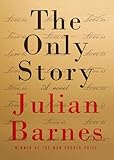 The Only Story by Julian Barnes: Give this to Barnes: the Man Booker laureate’s not afraid of difficult premises. In his 13th novel, a college student named Paul spends a lazy summer at a tennis club, where he meets a middle-aged woman with two daughters around his age. Soon enough, the two are having an affair, and a flash-forward to a much-older Paul makes clear it upended their lives. (Thom)
The Only Story by Julian Barnes: Give this to Barnes: the Man Booker laureate’s not afraid of difficult premises. In his 13th novel, a college student named Paul spends a lazy summer at a tennis club, where he meets a middle-aged woman with two daughters around his age. Soon enough, the two are having an affair, and a flash-forward to a much-older Paul makes clear it upended their lives. (Thom)
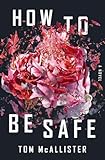 How to Be Safe by Tom McCallister: This novel, by the author of The Young Widower’s Handbook, is billed as We Need to Talk About Kevin meets Dept. of Speculation—those are two of my favorite books! Also? Tom McCallister…is a man! Although high school English teacher Anna Crawford is quickly exonerated after being named a suspect in a campus shooting, she nevertheless suffers intense scrutiny in the wake of the tragedy. As the jacket copy says, “Anna decides to wholeheartedly reject the culpability she’s somehow been assigned, and the rampant sexism that comes with it, both in person and online.” Of the book, novelist Amber Sparks writes, “It’s so wonderful—so furious and so funny and urgent and needed in this mad ugly space we’re sharing with each other.” Author Wiley Cash calls McCallister “an exceptionally talented novelist.” (Edan)
How to Be Safe by Tom McCallister: This novel, by the author of The Young Widower’s Handbook, is billed as We Need to Talk About Kevin meets Dept. of Speculation—those are two of my favorite books! Also? Tom McCallister…is a man! Although high school English teacher Anna Crawford is quickly exonerated after being named a suspect in a campus shooting, she nevertheless suffers intense scrutiny in the wake of the tragedy. As the jacket copy says, “Anna decides to wholeheartedly reject the culpability she’s somehow been assigned, and the rampant sexism that comes with it, both in person and online.” Of the book, novelist Amber Sparks writes, “It’s so wonderful—so furious and so funny and urgent and needed in this mad ugly space we’re sharing with each other.” Author Wiley Cash calls McCallister “an exceptionally talented novelist.” (Edan)
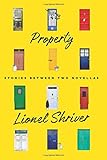 Property by Lionel Shriver: This one comes with baggage–the first collection of short fiction by the author of the electrifying We Need to Talk about Kevin, but also Shriver’s first published offering since she aired ill-considered views on cultural appropriation at the Brisbane Writer’s Festival and later in the pages of The New York Times, impelling many thoughtful responses, like this op-ed by Kaitlyn Greenidge, or this essay by Viet Thanh Nguyen, or this conversation between Rivka Galchen and Anna Holmes, or this recent essay by Kirstin Chen. As for the new book, Kirkus calls the opening novella “stellar,” but regrets that “in recent years, Shriver has become something of a scold in both her essays and fiction about what she sees as our overly sensitive, gumption-impaired society, and a handful of these stories are effectively chastising op-eds.” (Lydia)
Property by Lionel Shriver: This one comes with baggage–the first collection of short fiction by the author of the electrifying We Need to Talk about Kevin, but also Shriver’s first published offering since she aired ill-considered views on cultural appropriation at the Brisbane Writer’s Festival and later in the pages of The New York Times, impelling many thoughtful responses, like this op-ed by Kaitlyn Greenidge, or this essay by Viet Thanh Nguyen, or this conversation between Rivka Galchen and Anna Holmes, or this recent essay by Kirstin Chen. As for the new book, Kirkus calls the opening novella “stellar,” but regrets that “in recent years, Shriver has become something of a scold in both her essays and fiction about what she sees as our overly sensitive, gumption-impaired society, and a handful of these stories are effectively chastising op-eds.” (Lydia)









